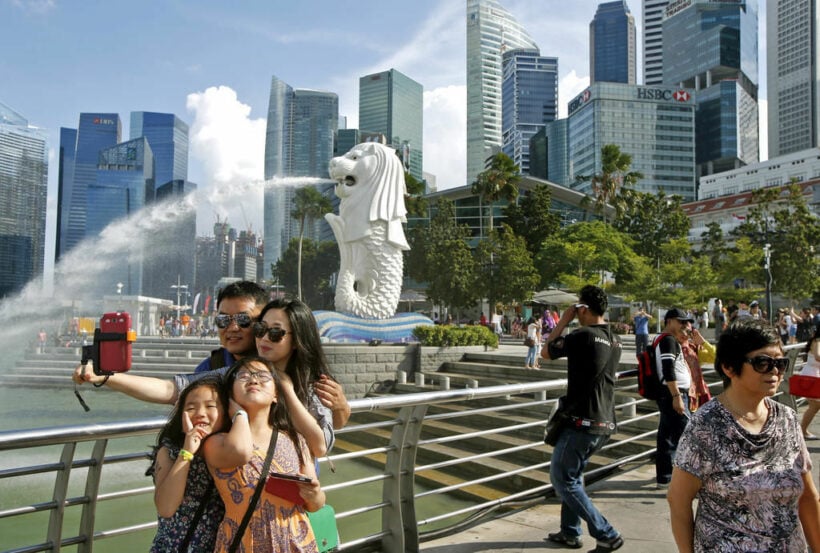Locals not rushing to book Singapore ‘staycations’

Tokyo residents can escape the city with a hike up Mount Fuji. New Yorkers can head to Long Island for a weekend. In Indonesia locals will be able to fly to the beaches of Bali. And in Thailand anyone living here now can visit the island of Phuket for a beach retreat.
Such is the Covid era ‘staycation’, the solution for domestic tourist economies around the world. Or is it?
Residents of Singapore have less of an option as, well, Singapore is tiny so any staycation won’t take you far away from home. With the island’s borders closed to foreigners, hotels and tourist attractions are hoping ‘staycationers’ will plug the gap in the battered $20 billion-a-year tourist industry. But despite industry enthusiasm, the Singapore locals haven’t been rushing to book staycations just yet.
Michael Issenberg, CEO Accor South East Asia, the largest hotel operator in Singapore says that unless there is a return to international business, the hotel industry is going to be decimated.
“Up to 90% of our bookings come from international travellers.”
While tourism internationally has been profoundly hit by the Covid-19 pandemic, a gradual re-opening of some domestic travel is giving a shot in the arm to airlines and hotels. Both industries, and the downstream travel agents, tour companies, taxi and passenger bus drivers, and cleaners, etc, have been particularly hard hit as border closures and lockdowns have shuttered hotels and ground entire fleets of planes.

Singapore’s tourism sector faces an even tougher challenge with hotels given a green light just last week to request approval to welcome domestic tourists. But locals have been saying they’d prefer to save their money and wait for travel to resume in nearby holiday spots in Thailand and Malaysia rather than spend it on a hotel just around the corner in Singapore.
Thailand and Malaysia are also promoting local versions of ‘staycations’. In Thailand the government is rolling out a three month stimulus package which gives users a 3,000 baht digital ‘wallet’ to use for expenses on rooms, flights and food.
Back in Singapore, the 5.7 million Singaporeans are now rebooting their economy after two months of lockdown, including a huge spike of new cases in April, the borders are still mostly closed. The city-state registered a historic low of just 750 foreign visitors in April, down from 1.6 million in the same month last year. May wasn’t much better – 880 visitors.
Selena Ling, head of treasury research and strategy at Oversea-Chinese Banking Corp says that in the short term, hotels, restaurants and attractions can shuffle their businesses to draw interest to staycationers by adding attractions and food discounts,.
“However, our inherent small domestic market size implies it may not be a longer-term sustainable solution.”
Tourism has been an increasingly vital industry for Singapore, helping to re-invent the economy from its traditional finance and shipping hub strengths. World class attractions including – Marina Bay Sands hotel, casino, Universal Studios and the Singapore Zoo have drawn tourists from around the world. The island has found its advantages as a cheap shopping stop-over and financial hub have been taken over by other south east Asian mega cities.
Last year, Singapore hosted a record 19.1 million visitors, while tourism receipts rose to S$27.7 billion (US$19.8 billion), fun 3% from the year before. Singapore’s tourism industry, employing about 65,000 people, contributes about 4% to the island’s GDP.
The border closure means Singapore needs to persuade locals to spend more money at home. Tourism Board CEO Keith Tan is confident the locals will be keen to travel locally and support the Singaporean economy.
“They may therefore be open to take time off in their own city and rediscover all that Singapore has to offer.”
“Singapore has set aside S$90 million for the tourism sector and a task force is developing domestic and international recovery plans to be shared soon. The board also aims to strengthen Singapore’s brand abroad by spending S$2 million to encourage content creators to produce compelling stories about the city-state.”
Latest Thailand News
Follow The Thaiger on Google News:


























